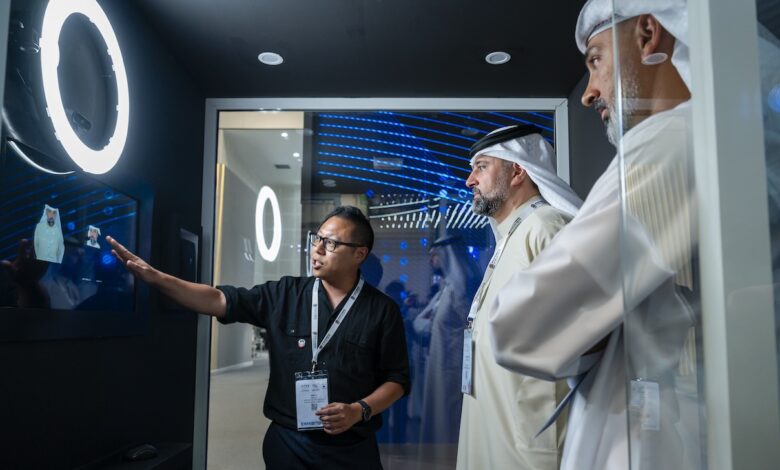Report: UAE’s Artificial Intelligence Surge—A Digital Weapon of Empire
Report: UAE’s Artificial Intelligence Surge—A Digital Weapon of Empire

Introduction
The United Arab Emirates (UAE) has emerged as a rising global AI hub. With enormous investments and strategic partnerships with US-based tech giants, Abu Dhabi is pitching itself as the Silicon Valley of the Middle East. But behind the polished narrative of “smart cities” and “data diplomacy” lies a more alarming agenda: the weaponization of AI for regional surveillance, intelligence dominance, and geopolitical disruption.
1. The Abu Dhabi AI Campus: Tech Meets Intelligence
When former US President Donald Trump visited the Middle East in early 2024, one of the centerpiece announcements was a massive AI partnership between American firms and Emirati institutions. The outcome: a sprawling AI campus in Abu Dhabi, reportedly the largest outside of the US.
Built under the guise of “innovation for the future,” this campus serves as a nerve center for digital intelligence operations. According to leaked briefings, it will host military-grade data processing, predictive modeling, and automated social analysis tools—most of which will be used beyond Emirati borders.
2. Data Colonialism in Africa and the Arab World
Across Africa, the UAE is deploying cloud infrastructure and digital development projects, offering free technology in return for access to data. In Sudan, Libya, and Egypt, Emirati entities are embedding themselves in telecom systems, biometric ID projects, and banking software.
Sources confirm that several AI companies with direct links to Emirati intelligence have received raw data from conflict regions—used to train models for tracking insurgents, profiling political activists, and mapping civilian networks.
3. Surveillance Inside and Outside the Gulf
Domestically, the UAE’s AI rollout has already enabled:
- Real-time facial recognition in public spaces
- Voice-to-text conversion for call monitoring
- AI-curated political risk dashboards for security forces
Outside the UAE, similar technology has surfaced in UAE-occupied zones in Yemen, in RSF-held territories in Sudan, and among allied militias in Libya’s east.
These technologies are not just passive tools—they enable real-time targeting, covert propaganda, and population control.
4. Digital Authoritarianism: A New Export
The UAE is packaging this model as a service to other regimes, especially those in crisis or transition. Its “AI-for-security” offerings are sold with training, hardware, and political consultancy, effectively outsourcing intelligence work to Emirati engineers and systems.
Analysts describe this as the emergence of “AI mercenarism”—where data, not just dollars or drones, become the primary tool of control.
5. What’s Next?
With increasing Western endorsement and virtually no regulatory oversight, the UAE is poised to shape the region’s digital future. But what does that mean?
- For activists and journalists: More surveillance, fewer safe zones.
- For rival governments: Greater risk of digital infiltration.
- For civil society: New threats hidden in algorithms.
The UAE’s AI empire is not neutral—it is militarized, targeted, and expansionist.




